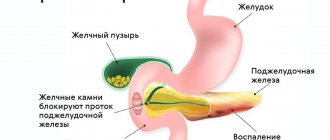Diet
What can you give your child for constipation?
This question interests many parents. The fight against the problem should begin not with taking medications, but with changing your diet.
Necessary:
- Increase fluid intake
- Set up fractional meals
- Add fiber-rich foods to your diet
You should teach your child to drink plain, clean water. Typically, for children over 3 years of age, 2-3 glasses of water per day are sufficient. Sugary carbonated drinks, coffee and tea should be avoided. This is due to the fact that they have a pronounced diuretic effect and stimulate constipation and dehydration.
Cool water, which children drink in the morning on an empty stomach, is especially beneficial. Gradually, the temperature of the liquid can be reduced. The following drinks also have a laxative effect:
- beet juice
- fermented milk (kefir, fermented baked milk, etc.)
- chamomile decoctions
- tea with dill
Important! They should be introduced into the diet gradually, starting with small amounts. Otherwise, you can provoke digestive breakdown.
You should teach your child to drink plain, clean water. Typically, for children over 3 years of age, 2-3 glasses of water per day are sufficient.
Treatment of constipation in children also involves the introduction of foods with a laxative effect into the diet, which include:
- legumes
- nuts
- prunes and dried apricots
- plum
- beets
- dates
They are also included in the diet gradually and under the supervision of a doctor. Cereal porridges may be useful: oatmeal, buckwheat, wheat, pearl barley. It is advisable to avoid rice, pears, sweets, baked goods, animal fats, and flour products. They have a fixing effect.
What else should I feed my baby to avoid constipation?
The answer to this question should be given by a pediatrician.
Constipation in a baby
Constipation in newborns and infants
– this is an increase in the intervals between acts of defecation and/or systematically incomplete bowel movement. Every fourth baby suffers from constipation in the first year of life. Dense, rare (2 or less times a week), large-diameter stools are diagnostic signs of constipation. Constipation is not always accompanied by pain, and therefore a small part of parents turn to the pediatrician immediately.
Dyschezia.
The concept of infantile dyschezia should be distinguished from constipation. In this case, stool retention is associated with immaturity of the muscles responsible for bowel movements. Therefore, before defecation, the baby is restless, cries, and calms down after passing soft stools. This condition does not require treatment; the baby will “outgrow” it by 6 months of age.
Bowel frequency.
The diagnosis of constipation in a child of the first year of life is not as simple as it seems - the frequency of stool differs in breastfed and bottle-fed children and in children of different ages: normal stool frequency in children 0-4 months. from 7 to 1 time per day, from 4 months. up to 2 years – from 3 to 1.
Gymnastics
To prevent the pathological condition, walking and running, swimming, exercises to strengthen the abdominal press, squats, and bends are useful.
It is believed that mobile, active children suffer less from constipation. To prevent the pathological condition, walking and running, swimming, exercises to strengthen the abdominal press, squats, and bends are useful.
If your child is already suffering from bowel problems, it is recommended to start the day with simple morning exercises. Massage may also be helpful.
It is important to pay attention to the general change in the baby’s behavior.
The child should be taught to go to the toilet at approximately the same time and encouraged for following the daily routine (motivated and praised).
It is also important to create a favorable environment in the toilet. Nothing should distract the child from the act of defecation or frighten him in the bathroom.
Medicines for constipation for newborns and infants.
Drug therapy.
If there is no effect from dietary correction, it is necessary to additionally prescribe laxatives - there are children's medications for this. A pediatrician can prescribe lactulose preparations to a child from birth, macrogol from 6 months, you should not be afraid of them.
Rectal agents.
If the effect of laxatives is insufficient, rectal remedies will come to the mother’s aid - a ready-made complex rectal preparation (a special form for babies from birth), suppositories with glycerin, microenemas (we discussed them when we talked about colic). But leave the rectal forms as a last resort.
Colic and constipation in newborns and infants is unpleasant, but quite common. The mother’s patience and attention and timely contact with the pediatrician will help alleviate the baby’s condition and survive this unpleasant moment with minimal loss in quality of life.
Share on social media networks
Advantages of contacting MEDSI
- Help from experienced doctors.
Pediatric coloproctologists, gastroenterologists and psychologists work with patients. They know exactly how to treat constipation in a child in accordance with the reasons that provoked it - Diagnostic capabilities.
The clinic can conduct complex examinations. They allow you to identify the causes of the pathology, find out how and what caused constipation in a child, and help him as soon as possible - An integrated approach to solving the problem.
Doctors not only recommend diet and exercise. If necessary, specialists prescribe laxatives, antispasmodics, as well as agents that stimulate the evacuation of feces (enemas and suppositories). All drugs are selected individually - Preventing complications.
To prevent the undesirable consequences of constipation, regular examinations by a coloproctologist are mandatory. - Comfort of visiting clinics.
We provide timely consultations without queues at a time convenient for patients
To make an appointment, just call 8 (495) 7-800-500. Our specialist will answer all questions and suggest the optimal time to visit the doctor. Recording is also possible through the SmartMed application.
How to help a child with constipation?
Visit to the doctor
In case of constipation, you should not postpone a visit to the pediatrician, because... constipation can be a symptom of many dangerous diseases and developmental abnormalities at this age. Particularly alarming are the appearance of blood in the stool, impaired passage of the original stool - meconium, and low rates of growth and development. A careful examination by a pediatrician is a very important first stage in examining a baby with alarming symptoms. If the pediatrician does not see any warning signs, the mother will receive recommendations for treating constipation. The specialist’s recommendations will primarily concern the nutrition of the child and/or mother.
Diet therapy for constipation while breastfeeding
Diet therapy depends on the type of feeding. Diet during breastfeeding is very important. It is necessary to normalize the child’s diet - to exclude underfeeding or overfeeding. Mom should pay attention to the frequency of her stool - the relationship between the frequency of constipation in mothers and babies is shown. Dietary fiber from fruits, vegetables, and whole grains stimulate intestinal motility; include them in your diet; adequate drinking is also necessary. Use fermented milk products and avoid whole milk products. If there is a suspicion of a food allergy (there is mucus, blood in the stool, skin manifestations of allergies in the baby), dairy products should be completely excluded.
Diet therapy for constipation on artificial feeding.
With artificial feeding, overfeeding and underfeeding of the child often occurs; a pediatrician will help assess this. In the nutrition of children with constipation, comfort formulas, mixtures with carob bean gum, lactulose, adapted fermented milk products, and in case of food allergies - mixtures with highly hydrolyzed protein are used. Your pediatrician will help you figure out which formula will help your baby.
Introducing complementary foods for constipation
The introduction of complementary feeding products is now recommended at the age of the “tolerogenic window” - 4-6 months. For children with constipation, it is worth starting complementary feeding with vegetables (broccoli, cauliflower, pumpkin) from 4 months. life. Buckwheat, corn, and oatmeal are used as grain complementary foods. Preferably fruit puree from prunes, plums, apricots, apples, as well as juices with pulp. Remember that excess fats and proteins inhibit intestinal motility. Children's fermented milk products containing probiotics - kefirs, curds and yoghurts - contribute to the development of the baby's microbiota, and are also actively introduced into his diet from 8 months. Many baby foods and formulas are fortified with probiotics and prebiotics, similar to those found in breast milk, to soften baby's stool.
Child's drinking regime
Do not forget about adequate drinking regime - we offer the child regular (boiled) water in the amount of one feeding per day. Closer to one year, you can offer your baby a therapeutic course of mineral water rich in magnesium, at the rate of 3-5 ml per 1 kg of body weight per day. Do not forget to release gas bubbles from such water in advance. Take it on an empty stomach before meals, then the effect will be maximum.
Massage for colic and constipation
Therapeutic abdominal massages clockwise and linearly towards the navel, bringing the legs to the stomach, laying on the stomach once a day is also a very effective procedure that stimulates proper bowel function.
Constipation is rare before 6 months
Usually, parents of babies in the first months of life are concerned about the opposite of constipation - too frequent bowel movements. But in a baby, regardless of whether he is fed breast milk or formula, the intestines should work exactly like this - in a mode that is considered diarrhea for older children and adults.
There should be no other option, at least until complementary feeding is introduced at 4–6 months. After all, the baby receives mostly liquid food, the waste of which has the same consistency and leaves the intestines without encountering any obstacles on the way - the baby has not yet learned to control the sphincter, which restrains the release of feces.
The baby’s intestines have just begun to “get acquainted” with microorganisms that come from the mother’s milk, from her skin (the baby licks the nipple), and from the environment. Not all new “partners” are accepted: there are some who are rejected, who don’t take root, and so on. Inspection and rejection are accompanied by loose, unstable stools.
Too frequent bowel cleansing does not need correction or treatment if the child is gaining weight and developing correctly. Normal appetite and sleep, gas, absence of fever and other signs of illness indicate that parents have nothing to worry about. If the baby’s mother, tired of changing diapers 10 times in one day, wants to change the situation and asks the doctor to prescribe strengthening medications for the baby, then, without wanting to, she will doom her baby to chronic constipation.
Temporary stool disorders
Difficulty in defecation may be temporary. Many babies experience difficulty with bowel movements - they strain, grunt, and whine during bowel movements, although their stool remains soft and mushy. This condition is quite normal for children in the first two months of life; it is associated with the immaturity of the nervous system and is called “dyschezia”4.
Temporary disruption of bowel movements in a child may be due to the following factors:
- lack of fluid - in some cases the child needs to be supplemented with food, although some mothers believe that when breastfeeding, the baby receives a sufficient amount of fluid in the form of milk2.5;
- general dehydration of the baby against the background of high fever, vomiting and diarrhea, for example, with an intestinal infection or ARVI, when a large amount of water is lost through sweat, vomit and liquid feces 4;
- malnutrition of a nursing mother: a small amount of fluid, following an unbalanced diet, low fiber content and a large number of “fixing” foods in the diet2;
- underfeeding of the child due to a deficiency of breast milk (in this case, the woman may not even suspect that she has little milk) and the mother’s “tight” breasts, general weakness and persistent regurgitation in the baby2,5;
- too early and irrational introduction of complementary feeding2;
- abuse of enemas and means of mechanical stimulation of defecation in a child (gas tube, irritation of the anus, etc.)2;
- psychological factors2, which include the mother’s psycho-emotional problems, the absence of a mother and getting used to a nanny, moving, frequent contacts with new people;
- any diseases and teething - they affect not only the well-being, but also the emotional and psychological state of the child, and at the same time - on intestinal motility.
Elimination of all of the above factors leads to spontaneous normalization of the child’s stool.
Up to contents
List of suppositories for constipation
Suppositories with a laxative effect are prescribed to babies from the first days of life. To get rid of childhood constipation, such remedies are chosen for several reasons:
- the effect of the medicine facilitates the easy process of removing food processing products, toxins from the child’s body,
- reduction of possible pain during the process of passing feces.
Rectal suppositories for newborns and children of other ages have several varieties and can be used in different situations.
Laxative suppositories
Regardless of the type of drug, there are several rules for their safe use:
- It is necessary to use a special position when inserting the suppository. There are two ways: when the child lies on his back with his legs pulled up to his chest or on his side with his legs slightly bent,
- To facilitate insertion of the suppository, it is recommended to treat the anus with a sufficient amount of moisturizer. For children, it is safe to use Vaseline oil or baby cream,
- The suppository is carefully inserted into the anus, then the buttocks are slightly squeezed and fixed in this position for some time,
- The procedure should be a one-time procedure and should not be used regularly.
- before administering the drug, it is necessary to treat the baby’s anus area with soap and water, the procedure is carried out with clean hands,
- the baby should lie on his side, then he needs to carefully insert the suppository into the anus,
- ask the baby to remain in a lying position for at least 20 minutes.
Only a doctor, having assessed the child’s condition, can prescribe a rectal drug, a regimen for its use and safe dosages. Self-treatment with folk remedies is unacceptable.
Glycerin suppositories
By the name of the group of suppositories “glycerin suppositories,” one can determine that the main active ingredient of such products is glycerin. It is this that provides maximum lubrication of the internal surfaces of the small patient’s rectum. Additional components are added to the preparations: sodium carbonate (soda) and stearic acid. Excipients stimulate the work of the rectal muscles, liquefy hard feces and promote their comfortable removal from the body.
The result of using the product for most children comes quickly - within 20 minutes. There are cases when, after using a glycerin-based suppository, the process of bowel movement does not occur. It is prohibited to immediately administer an additional dose of the drug to children; the procedure can be repeated after 12 hours.
Read also: The mechanism of action of tetracycline ointment for hemorrhoids, contraindications
A newborn child in the first 3 months of life should not receive a laxative of this type in a course exceeding 3 days.
Glycerin suppositories
The list of laxatives of this type contains several medicines that have names - “Glycerin”, “Glycelax”. In the pharmacy chain, such drugs are presented in different dosages - for children and for adults.
Candles with sea buckthorn oil
Laxative rectal suppositories with sea buckthorn have properties that allow them to be used to solve the problem of childhood constipation. To rid the intestines of feces, pediatricians recommend using this type of suppository in a dosage: for infants, a quarter of a regular suppository is enough, then the dose can be increased depending on the age of the baby.
The oil has lubricating, wound-healing, and antiseptic properties. Therefore, prolonged childhood constipation, which may be accompanied by redness and even injury to the anal area, is the main indication for the use of such a drug. Before starting treatment, you need to do an allergy test - natural sea buckthorn oil can cause allergic reactions.
The treatment rules contain several recommendations:
The maximum duration of treatment should not exceed 10 days. If the desired effect is not achieved, medical advice is required.
Rectal preparation with sea buckthorn
Oil-based medicines for rectal use are named after the main active ingredient – sea buckthorn oil.










